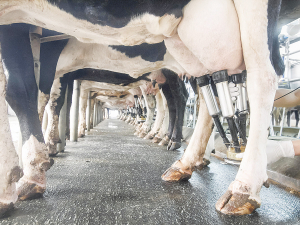OPINION: DairyNZ's latest forecast data on the Econ Tracker, that the outlook for the current season has improved, will be welcome news for farmers.
Only six months ago, the outlook was dire for many farms, with soaring input costs and a very average milk payout.
In recent months, dairy prices on Global Dairy Trade have risen, although the last two GDT events have seen prices retreat slightly.
DairyNZ says revenue projections have improved largely due to better results at the global dairy auction, along with Fonterra’s adjusted projected payout for the season, now sitting at a mid-point of $7.80/kgMS.
The Econ Tracker notes significant price decreases for feed and fertiliser, bringing these more in line with historical averages, reducing on-farm costs.
But interest rates remain high, becoming one of the most significant costs for farmers this season. The Reserve Bank signalled slowed reductions to the official cash rate, meaning interest rates are now likely to reduce more slowly and later than previously expected, which will concern farmers, many of whom are on floating rates.
When considering these changes, DairyNZ’s latest forecast data on the Econ Tracker shows the national breakeven forecast currently sits at $7.75/kgMS. This is below DairyNZ’s forecast average payout received of $8.12/kgMS, which is based on the estimated milk receipts for the 2023-24 season and dairy company dividends for all processors.
With less than two months left for the season, farmers will be turning their eyes to the next season and the forecast from Econ Tracker isn’t very good.
The breakeven milk price for the 2024/25 season is forecast to sit at around $7.76/ kgMS, while the forecast payout received is $7.79/kgMS.
The message for farmers is to continue managing their budgets and costs.
Farmers will be hoping for a payout higher than Econ Tracker’s forecast of $7.79/kgMS.


















